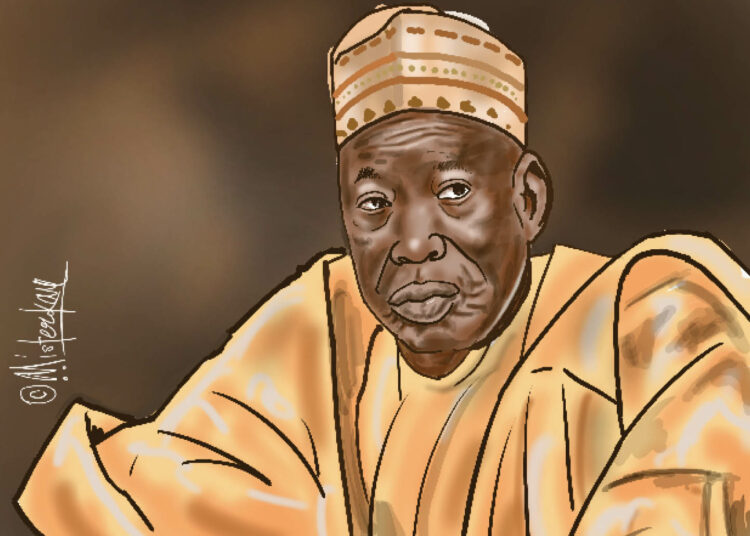There is something about the chairmanship of Nigeria’s ruling political parties that makes it a hot seat – one in which only a microscopic few last longer. When the opposition Peoples Democratic Party (PDP) was in power, it changed its national chairman as frequently as models change clothes, producing 14 chairmen in just 18 years.
Under the PDP, particularly during President Olusegun Obasanjo’s eight-year tenure, remaining in that position required nothing more than total loyalty to the commander-in-chief who is automatically the party leader. There are plenty of accounts of chairmen who lost their seats simply because Baba no longer liked their faces.
Like PDP, Like APC
Then came the All Progressives Congress (APC), which ascended to power by relentlessly opposing the PDP. For the APC, everything about the PDP was anathema. Yet, much like the PDP it so vocally condemned, the APC has also been cycling through national chairmen at breakneck speed. Since its formation in 2013, the party has had eight national chairmen, including the current one, Bukar Dalori.
A quick rundown of the turn out of APC chairmen is as follows: Bisi Akande (2013–2014), John Oyegun (2014–2018), Adams Oshiomhole (2018–2020), Mai Mala Buni (2020–2022), Abdullahi Adamu (2022–2023), Abubakar Kyari (interim, July–August 2023), Abdullahi Ganduje (2023–2025), and now Bukar Dalori.
Dalori stepped in as acting chairman following Abdullahi Umar Ganduje’s resignation, or more accurately, the ouster of the former Kano State governor. Ganduje’s abrupt exit triggered a wave of speculation and a rush among political heavyweights from the North Central zone, who have been eyeing the coveted seat.
Various narratives, including conspiracy theories, have trailed Ganduje’s resignation. Nigerians, in large part, rejected his claim of resigning due to health reasons. In this part of the globe, resignations from public office are quite rare, and typically signal threat of an imminent sack. In Ganduje’s case, citing health issues was merely cosmetic. The real reasons will likely come to light in due course.
Good Riddance To Bad Rubbish
One thing is clear: Ganduje’s resignation is, as the saying goes, good riddance to bad rubbish. He was never a suitable fit for the APC chairmanship. Toward the end of his tenure as Kano governor, a viral video showed him allegedly stuffing his pockets with dollars, which were said to be kickbacks from contractors.
Though the video was quickly dismissed as fake, it has continued to haunt Ganduje’s reputation. Many Nigerians at home and abroad still believe it was genuine.
If Nigeria, or specifically the ruling APC, were genuinely committed to fighting corruption, Ganduje would never have been rewarded with the party’s top position, especially in the absence of any serious investigation into the matter. The video sparked outrage in Kano, across Nigeria, and within the diaspora. Yet, this is Nigeria, where such issues are easily overlooked.
Interestingly, Ganduje exited almost the same way he entered. His exit, like the entry, was marked by drama and controversy. His entry followed the forced resignation of Senator Abdullahi Adamu, another former governor, and was preceded by intense internal wrangling. His departure was even more dramatic – a development described by some insiders as a tactical withdrawal.
So, what does Ganduje’s resignation portend? Is the APC, and perhaps Nigeria, ushering in a new era of political reassessment where zoning formulas, defections, and internal deals outweigh public interest or ideology?
A Strategic Opportunity?
Ganduje’s resignation presents the APC with a strategic opportunity for realignment. It could also be the party’s way of responding to the North Central’s persistent demand for the party chairmanship, based on internal zoning arrangements. In fact, Ganduje’s exit could clear the path for Rabiu Musa Kwankwaso, who has been rumoured to be inching closer to the APC, to formally defect.
More importantly, the forces that compelled Ganduje to resign point to an effort to retool APC leadership ahead of the pivotal 2027 general elections. The emergence of a new political coalition has rattled the ruling party, pushing it to re-strategise, especially in the North which remains the country’s largest vote bank.
The APC is under pressure to consolidate its grip by wooing defectors, and Ganduje was seen as a stumbling block to this objective. He had to be removed. Now, attention turns to who will lead the APC across 2027 and how Ganduje’s legacy, however tainted, will be handled. Expectedly, the North Central zone has renewed its call to produce the next party chairman in line with the APC’s internal zoning formula.
A Critical Moment
The APC may be facing its most critical moment since its inception. A potent new coalition determined to wrestle power is gaining traction, public disenchantment is rising, and internal rifts are growing even within the party’s traditional strongholds. How the party manages the jostling from the North Central will shape its future, pure and simple.
Crucially, ahead of the July 24 National Executive Committee (NEC) meeting, the APC must identify the right candidate from the North Central to succeed Ganduje. This task is proving challenging for a party that has struggled to manage internal consensus.
One telling example is the party’s failure to constitute a Board of Trustees (BoT) since its formation. The BoT, which is supposed to serve as the party’s moral compass and resolve conflicts, has remained dormant due to conflicting interests. To date, not a single BoT meeting has been convened, even though it is a constitutional requirement.
With the coalition adopting the African Democratic Congress (ADC) as its platform for the 2027 elections, it’s evident that the ruling APC is under significant pressure. The party’s popularity is waning, mainly fueled by public dissatisfaction with President Tinubu’s economic policies, which are widely regarded as ill-conceived and punishing to ordinary Nigerians.











